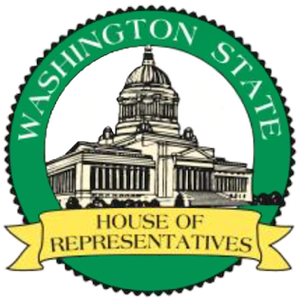The Washington State House Regulated Substances and Gaming Committee (WA House RSG) was charged with considering issues relating to the regulation and taxation of alcohol, tobacco, vapor products and cannabis, as well as product safety and access, and issues relating to the regulation and oversight of gaming, including tribal compacts. Formerly the Washington State House Commerce and Gaming Committee (WA House COG), the scope of the committee was changed at the beginning of the 2021 state legislative session before the committee was disbanded at the end of 2024.
Executive Session
- SB 5080 - "Expanding and improving the social equity in cannabis program."
- SB 5367 - “Concerning the regulation of products containing THC.”
Public Hearing
- SB 5069 - “Allowing interstate cannabis agreements.”
- SB 5340 - “Regarding limits on the sale and possession of retail cannabis products.”
- SB 5546 - “Establishing a Washington state cannabis commission.”
